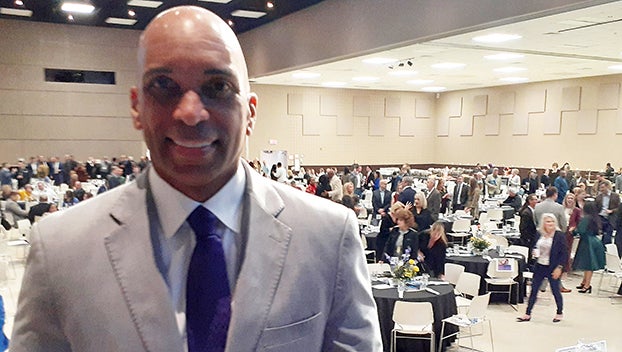DR. MARK PORTERIE — Your ballot is your voice. Speak loud.
Published 12:20 am Saturday, February 3, 2024

- Dr. Mark Porterie is the Port Arthur Independent School District superintendent and 2023 Arthur E. Stilwell Award honoree. (Stephen Hemelt/The News)
|
Getting your Trinity Audio player ready...
|
It is never a good idea to be complacent about issues that could currently and futuristically affect our lives in a negative way.
In the United States, we have a representative democracy, where our government is elected by citizens. Democracy provides an environment that respects human rights and fundamental freedoms, and which the freely expressed will of people is exercised.
Our next election will effectively determine the person who will hold almost every seat in the Texas Legislature, as well as other elected offices throughout the state. However, based on past trends, the vast majority of registered voters will not participate.
The Republican and Democratic parties will hold their own elections on March 5, with early voting starting on Feb. 20, 2024. When Texas held primary elections in 2022, only 18 percent of registered voters cast a ballot. Decisions about which candidates to nominate are being made by a relatively small group of Texans.
This matters because the Texas primaries are profoundly consequential. Political districts, including those that determine who represents us in Washington, D.C. and in the Texas Legislature, are increasingly drawn to elect one party or another.
Precisely drawn districts are crowded with voters who are known to largely prefer Republicans or largely prefer Democrats. Consider the elections in the Texas House in November 2022: Despite the fact that all 150 state House seats were on the ballot, only five of those 150 races were decided by 10 percentage points or fewer.
Most seats are not truly competitive between the parties.
When we largely know which political party is going to win a general election, the primary election to choose that party’s nominee becomes much more important. These primaries effectively help determine which ideas will be passed into law and which ones will stall.
When it comes to public education, the primaries go a long way in determining, for example, how much funding local schools will receive, or whether state lawmakers will increase salaries for educators.
This is why public education supporters need to actively and aggressively engage in this year’s primaries. The good news is that voting in primaries is rather easy.
Texas has an open primary, which means that any registered voter can cast a ballot in either party’s primary, regardless of which primary they previously participated in. The voter simply walks into the polling station and requests either a Democratic or Republican ballot.
Voting in a particular party’s primary does not mean that the voter will have to participate in the same party’s primary in the future; and of course, the voter is free to support whomever they choose in the November general election.
If no candidate in a primary election earns more than 50 percent of the vote, the top two finishers will advance to a run-off election a few months later. These run-offs traditionally have an even lower voter turnout, but they are just as crucial as the elections in March and November.
Before early voting, prospective primary voters should do their homework and learn about each candidate and their positions before choosing a primary in which to vote. It is also important to find ways to engage with candidates and ask about their positions on education and other key issues.
Go to their events or contact them through their websites. Don’t be shy about asking questions. After all, politicians are most responsive when they are about to ask for our votes.
It has been said that those who show up make decisions. This spring, we should all take seriously our responsibility as citizens to show up and play our part in deciding which candidates will be on the ballot this year.
The future of our public schools, and our state, could very well depend on how many voices are heard. Your ballot is your voice. Speak loud and clear.
Feb. 5 is the last day to register to vote.
Dr. Mark Porterie is superintendent of schools for the Port Arthur Independent School District. He can be reached at mporterie@paisd.org.





